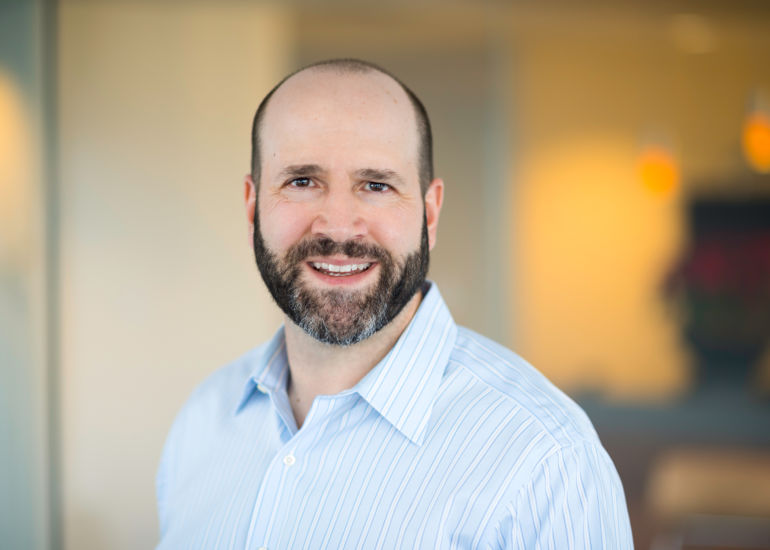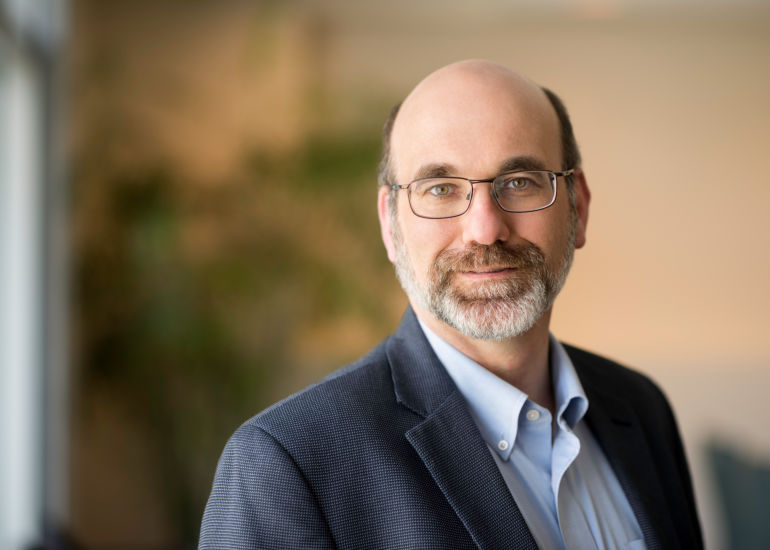
On September 10, 2020, the Patent Trial and Appeal Board (PTAB) decided key motions in Interference No. 106,115, University of California v. Broad Institute. The interference involves 14 patent applications of the University of California (The Regents of the University of California, University of Vienna, and Emmanuelle Charpentier, collectively referred to as "UC") and 13 patents and one patent application of Broad Institute (The Broad Institute, Massachusetts Institute of Technology, and Presidents and Fellows of Harvard College, collectively referred to as "Broad"), all directed to the use of CRISPR-Cas9 to edit eukaryotic genomes. Broad and UC had argued these motions before the PTAB in May 2020.1
This decision is the latest turn in a long battle between Broad and UC. In a previous round of interference, Broad was able to secure its U.S. patents covering CRISPR-Cas9 in eukaryotes. The current interference puts these patents in question again. If UC prevails, Broad would lose its CRISPR-Cas9 eukaryote patents. Notably, UC also owns patents generally directed to CRISPR-Cas9 and not particularly to eukaryotes, which are not involved in this interference. Even if UC loses this interference, its general CRISPR-Cas9 patent claims would remain unaffected.
The PTAB decision recognized Broad as having the earliest effective filing date, but turned down its request to call off the current interference altogether. While the former gives Broad an advantage in proving it invented first, the latter appears to be a significant setback. The decision thus does not settle the dispute, but rather moves it to the next stage, where each party may submit actual evidence, such as lab notebooks, to prove they invented the disputed CRISPR-eukaryote system first. This stage may be rather long and complicated, and the parties may face increased pressure to settle.
A patent interference is a proceeding formerly used to determine who first invented a claimed invention. Interferences were phased out in a 2012 legislation, but patents or applications with effective filing dates before March 2013 still can be subject to an interference. To simplify the proofs of first invention, the disputed invention is defined in a "count" based on the parties' claims.
Details
Interference No. 106,115 is the second interference between Broad and UC over the CRISPR-Cas9 technology. The first interference between the parties ended in 2018 after an appeal, with the conclusion that the parties' claims did not in fact interfere because Broad's invention, directed to CRISPR-Cas9 in eukaryotic cells, would not have been obvious in light of UC's invention, which claims the CRISPR-Cas9 system generically. The current interference was triggered by new claims UC filed shortly after conclusion of the first interference, which have essentially the same scope as Broad's claims that survived the first interference. The patent examiner decided the new UC claims were allowable except for a potential interference with Broad's claims, and the PTAB subsequently declared the second interference on June 24, 2019.
The PTAB's decision on September 10 mainly addressed three issues: 1) whether the PTAB should recognize either party's first provisional application as its earliest effective filing date; 2) whether the first interference as affirmed by the Federal Circuit should bar or "estop" the current interference; and 3) whether Broad's request for a broader "count" should be granted.
Regarding the earliest effective filing date, each party requested the benefit of its first provisional application. Having the earliest recognized filing date makes one party the "senior party," which means the party is presumed to be the first inventor—a big advantage in a priority contest. Any other party would be a "junior party." In the current decision, the PTAB found that Broad's first provisional application, filed December 12, 2012, provided a constructive reduction to practice of an embodiment within the count, and UC's request for benefit to its first priority date was denied. The PTAB held that UC's earlier applications lacked discussion of PAM sequences, sample target DNA sequences, and special instructions or conditions necessary to accommodate the eukaryotic cellular environment. The PTAB found that these failings were not overcome until UC's third provisional application, which was filed on January 28, 2013. Accordingly, the PTAB redeclared the interference with Broad as the senior party and UC as the junior party.
On the estoppel issue, Broad requested judgment against UC because the earlier interference should have decided all issues between the parties. Broad argued that UC should be barred from pursuing its new claims, because Broad's claims involved in the two proceedings are the same, and the same issues based on the same facts were already litigated in the first interference. The PTAB denied Broad's request, explaining that the first interference did not involve priority or patentability of either party, and did not decide those issues, much less all issues that may be argued before the Board. The PTAB was also not persuaded that the counts in the two interferences were directed to the same subject matter. In reaching its decision, the PTAB had to distinguish several USPTO authorities, which might provide Broad with procedural arguments on appeal if it loses priority.
On the third issue, Broad moved for the PTAB to interpret its claims broadly and to broaden the current count defining the scope of disputed subject matter and the proofs for priority. Any claim involved in the interference that is not patentably distinct from the count is grouped with the count. As a result, the losing party would lose any claims patentably indistinct from the count. In the current interference, the original count was directed to a eukaryotic cell comprising CRISPR-Cas9 system with a single guide RNA. Broad requested PTAB to construe its claims reciting "guide RNA" as encompassing both single guide RNA and dual guide RNA, and to substitute the original count with one that covers both single and dual guide RNAs. Broad presumably requested this change because its earliest proofs of invention involved the use of dual guide RNA. The PTAB considered the parties' arguments and declarations and denied these motions, mainly based on Broad's own applications, which stated that "chimeric RNA," "chimeric guide RNA," "single guide RNA,"—all of which mean a single guide—and the term "guide RNA" are used interchangeably.
Broad moved alternatively for numerous claims—claims that do not recite a single guide, claims that recite a Cas9 derived from a different species than that was in the provisional applications, and claims that recite two nuclear localization sequences—to be deemed outside of the scope of the original count. The PTAB held that Broad's arguments that these claims were patentably distinct from the count were not supported.
Both UC and Broad have remarked on the PTAB's decision. A UC spokesperson noted that the university, while disagreeing with the accordance of benefits, is pleased that the PTAB has ruled in its favor in most instances, and "remains confident that the PTAB will ultimately recognize that [UC and its affiliated research team] was first to invent the CRISPR-Cas9 technology in eukaryotic cells."2 Broad, on the other hand, largely called for a settlement for the parties to move beyond the disputes and "focus on using CRISPR technology to solve today's real-world problems."3
While the PTAB decision declared Broad as the senior party, Broad's priority date is only 47 days before UC's. The interference will now move to the priority phase, where each party may present evidence—for example, actual lab records—to establish its actual date of the invention. The PTAB has provided time periods for submission of priority motions and oppositions to the motions. These time periods go until May 7, 2021, after which an oral hearing may be ordered. Although Broad won the status of senior party, the retention of the (narrower) original count might impair Broad's ability to contest priority, and certainly its inability to convince the PTAB to end the interference without a priority contest appears to be a significant setback for Broad. This mix of outcomes—with Broad receiving an advantage on priority but with UC prevailing on the terms of the priority contest—leaves both parties with considerable uncertainty, possibly increasing pressure to settle.
For further information about U.S. Interference No. 106,115, please contact Vern Norviel, Maya Skubatch, Lou Lieto, Karen Wong, Richard Torczon, or any member of Wilson Sonsini's patents and innovations practice.
This Wilson Sonsini Alert was prepared with additional support from Rachna Ujwal.
[1] “Patent Trial and Appeal Board Hears Argument in CRISPR Patent Priority Dispute,” Wilson Sonsini Alert, https://www.wsgr.com/en/insights/patent-trial-and-appeal-board-hears-argument-in-crispr-patent-priority-dispute.html.
[2] See Jon Cohen, “The Latest Round In The CRISPR Patent Battle Has an Apparent Victor, but The Fight Continues,” Science (September 11, 2020), https://www.sciencemag.org/news/2020/09/latest-round-crispr-patent-battle-has-apparent-victor-fight-continues.
[3] “For Journalists: Statements and Background on the Crispr Patent Process,” Broad Communications, https://www.broadinstitute.org/crispr/journalists-statement-and-background-crispr-patent-process (last updated September 10, 2020).
Contributors
- Privacy Policy
- Terms of Use
- Accessibility


